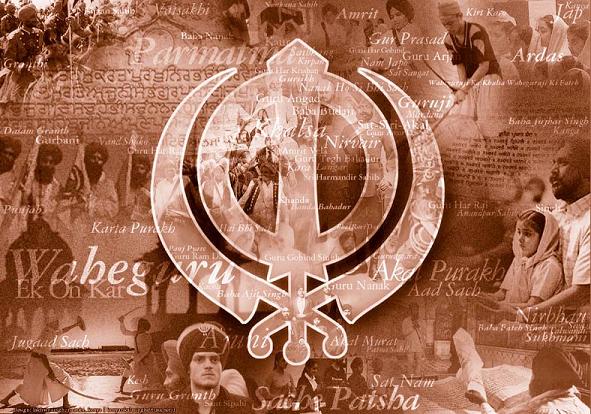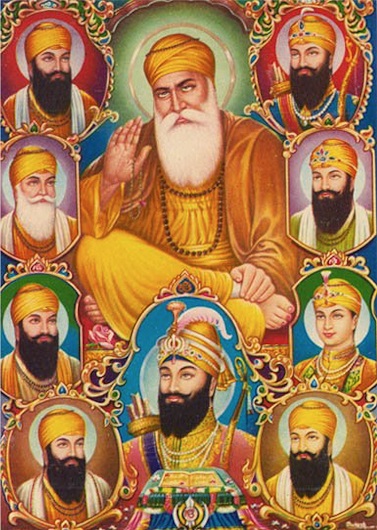
Shaheed Banda Singh Bahadur
Dr. Kulwant Singh Khokhar

Shaheed Banda Singh Bahadur
Many places in Delhi are there to tell,
Sikhs love their faith, at no cost do they sell.
Baba Banda Singh was born in 1670. He was named Lachhman Das. His parents lived in Rajauri, a village in Jammu region, to the north of Punjab. He left Jammu and wandered in search of peace. After years of wandering, he reached Nanded, a small town on the banks of Godawari, a famous sacred river of south India. He established his 'dera' near the city. Then he was called Madho Das Bairagi, because of his detachment from family life.
When he went to the south, in 1708, Guru Gobind Singh camped in Nanded. One day, when the Guru happened to go to the 'dera', the Bairagi tried his many tricks and magic to impress the Guru, but failed. He soon realized that the visitor to his 'dera' was no ordinary person, but a great master. He fell to the feet of the Guru and felt solace in his mind. When the Guru asked him who he was, he answered, "Master, this is your Banda (slave)."
The Guru was pleased with Bairagi's character, and gave him Khanda-Bata-Pahaul, thus renaming him Gurbakhsh Singh, but the humbly said words "Your Banda" remained stuck to him, giving him the popular name Banda Bahadur. Because of his great qualities, Banda Bahadur was made the leader of the Khalsa and sent to the Punjab to destroy the roots of the evil rule of the Nawab of Sirhind. Five other Singhs were sent with Banda Bahadur as his advisors.
When the people in the Punjab came to know of his arrival, they rallied around him and offered him all kinds of help. The masses revolted against the tyrannical government and sided with Banda to dislodge the rulers. The important cities of Samana, Banur, etc. fell quickly to the armies of the people. Finally, Sirhind was taken in 1710. The governor who had murdered the two innocent sons and the mother of the Guru there in 1704, was killed.
Banda started a rule of peace and justice. However, when Farkhseer became the Emperor, he sent a strong army to capture Banda. In 1716, Banda was surrounded from all sides but still the army would not dare to face him. According to a Muslim author, Mohd Qusim, "Such was the terror of the Sikhs and the fear of the sorcery of the Sikh chief that the commander of the army prayed that God might so ordain things that Banda should seek safety in his flight from the fortress."
Banda was tricked and caught by the commander pretending that the Emperor was willing to have a dialogue and settle with him by making him the king of Jammu, his home state. After his arrest, Banda along with his 700 men was taken to Delhi.

All efforts by the Emperor to convert Banda or any of his men to Islam failed. The frustrated Emperor ordered the cruel method of killing them all, i.e., by cutting off the head of every Sikh in public. About 100 Sikhs were murdered daily near Chandni Chauk. Finally Banda was brutally tortured and killed.
Before his murder, one Mughal noble interviewed Banda and stated, "It is surprising that one who shows so much nobility should have been guilty of such horrors." Banda replied, "Whenever men become so corrupt and wicked so as to relinquish the path of equity and abandon themselves to all kinds of excesses, then providence never fails to raise up a scourge like me to chastise a race so depraved, but when the measure of punishment is full, then he raises up men like you to bring him to punishment."
Corrupt and wicked rulers are punished by saint-soldiers deputed by God.

